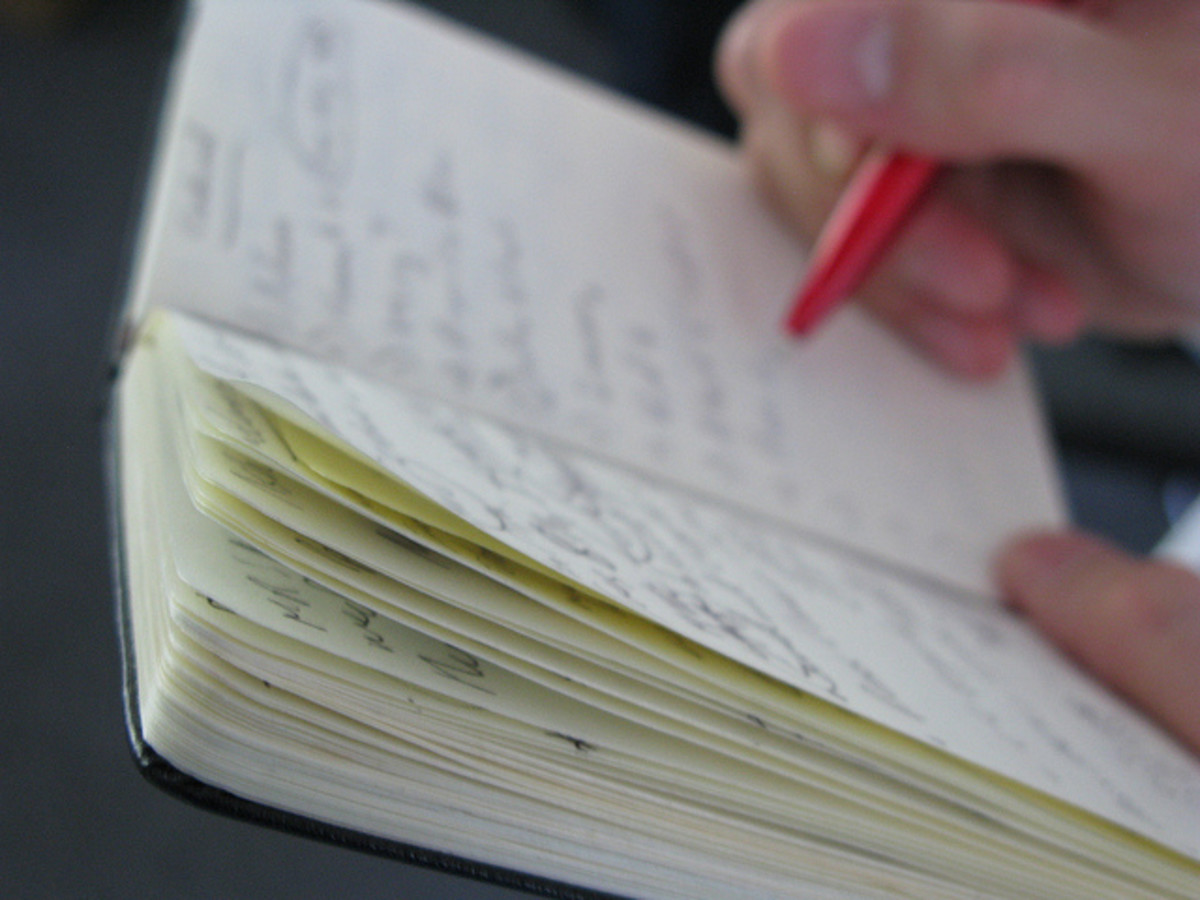From Idea to Ending: The basics of writing a short story
Writing a short story can be very fun, but it can also be frustrating too. The purpose of this article is to help take at least a little bit of the frustration out of writing short stories. As you probably already know, there are certain things required when writing stories of any length. Plot, setting, scene, characters, conflict, theme, a beginning, a middle, and an end are all must haves. When writing short stories, the most important thing is length. This is especially important if you are writing it the intention of submitting it to a publisher. When they say no more than 750 words, they mean NO MORE THAN 750 words. Even if it is a good story, if it is over the word count it will not be accepted.

But what do I do?
The first thing to do when writing a short story is to decide what you want to write it about. Will it be fiction or fact? If you choose to write a fictional story, you still have to consider the facts that will make it feel real. And without some facts a story won’t make sense either. Aside from that, facts are a great way to generate ideas for a story, especially by asking “what if." You can also build a story around a character. I go into more detail on this subject in my hub Short Story Ideas: Tips, techniques, and exercise for creating them. Once you have your idea, I recommend making an outline. Why do I need an outline for a short story, you ask? An outline plays one very crucial role; it helps you manage your length by staying on track. I don’t mean you have to have every tiny detail in your outline. Nor is your outline set in stone. An outline is to be your guide. It will help you figure out what is necessary for your story, and the amount of time it will be told in.
Why do I need to worry so much about length?
Why am I talking so much about length? It’s because a short story is, by definition, short. And if you are planning to have it published, the length is a key factor. As I mentioned above, if it is for a magazine publisher length becomes even more important. They have limited space, so even if they like the story itself; they won’t be able to use it if it exceeds their available space. When considering the length of your short story, you also need to look at the space of time your story takes place in. Is your story told in the span of twelve hours, or two? Or does it need a couple of days? Will you be able to stay within your word limit if it takes that long? An outline can help you figure this out. Maybe you have a great idea for a short story, but when you start making an outline (or maybe just notes) you realize it will take far more than 1,000-2,500 words to tell the story. It may still be a great story, just not a short story. You may just have found an idea that would work better as a book. Write it down and keep your notes with it in a file, you will probably come back to it later.
I have an idea and outline, now what?
Once you have your idea and outline, or notes, you need to make sure you are organized. Do you have everything you will need, so you don’t have to keep getting up to get things as you are writing? Do you have all your notes? Is there paper in the printer? Do you have a dictionary and thesaurus, just in case? Making sure you have everything you need, and it is organized so you can find it quickly, will make the writing process go much smoother. This may seem like a lot of work for a short story, but it is well worth doing. Your concentration is less likely to be broken if all of your materials are within arm’s reach, and organized, while you are writing. You will also want a checklist on hand to make sure everything has been covered. Once you have all that, you can start writing your story.
Sample checklist
Here is a sample checklist to help you out. Depending on what you are writing, your checklist may differ.
o Does the story proceed logically from beginning to end?
o Is there a challenge for the character to meet?
o Is there dialogue?
o Does it have a clear sense of the story’s time and place?
o Is it correctly punctuated?
o Did you “show” the story, not “tell” it?
o Does it meet the word count criteria?
o Does it read well out loud?
o Is it believable and does it make sense?
o Did you give it a title?
It is optional, but if you can, you might want to have someone else read your story. Ask them to see if there is anything that they don’t understand, is confusing, or is unclear. It can be hard to get someone to give you this feedback, but it is definitely worth it. Others are able to see things that you might miss because you are too close to the story. It’s your creation, so you know what is going on; they don’t.
Beginning, Middle, and End
Everyone knows that all stories have a beginning, middle, and end; but what goes in those areas can sometimes be slightly confusing, as can how long they should be.
Beginning:
- Establishes the situation
- Problems are introduced
- Characters are introduced
- Is a quarter of the available word count
Middle:
- The problems intensify
- Include ups as well as downs to enhance suspense
- Characters are learning something or growing in some way
- Is half of the available word count
End:
- Problems are resolved (this is where the climax comes in)
- Main character has learn something, or completed some kind of growth
- Is a quarter of the available word count
Yes! I’ve finished the story! Wait, what did you say?
Just because your story is finished, doesn’t mean you are. Yes, you heard me right. Now you have to start on revisions. The best way to start with that is to print your story out, grab some pens for correcting mistakes, and read it out loud. Yes, I said Out Loud. When you read your story out loud you will pick up on mistakes you may miss when you read it in your mind. Our minds have a tendency to add words or punctuation so it sounds right, and flows smoothly. When you read it out loud, those mistakes will jump out and slap you. With it on paper, it will also be much easier to see any spelling mistakes. Even if you have spell check it is important to do this. Spell check won’t catch “here” when the word was supposed to be “her” because both are spelled right. The wrong word in the wrong place can wreak havoc with your story, especially in the eyes of a publisher. This is also where your checklist comes in. It will help you make sure you haven’t missed anything. You also have to be willing to take a good hard look at your story and be honest with yourself. Cutting things out and revising other areas requires it of you. It is not easy, but you will be glad that you did.

What if I got it too long (or too short)?
If you went over your word count, you are going to have to start cutting. It is a thought that most writers shudder at, but it is a necessity more often than not. Even if you haven’t gone over the word count, cutting things can be necessary in order to polish your story and make it publishable. When you are cutting, you need to look for things that don’t move the story along. Did you put too much detail in this this description? Is that character talking about something that really isn't important? You might even have a minor character that really isn't important to the story, or one that seems to be running away with it because they are fun to write. Are all of your scenes really important? Cutting can be very hard to do, this is your baby after all, but it will make your story better. If your story was too short, look at the balance of the elements. Is most of your story dialogue? How much description is there? Did you flesh out your main character? You don’t want to pad your story with fluff, but you need more than just bones too. Getting the balance right can take practice, but the more you write the easier it becomes.





